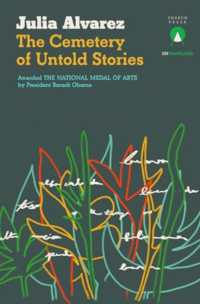Full Description
During the sixteenth century, the traditional act of dedicating a text took on a new meaning due to the wider dissemination of the printed book. As the dedication and other paratexts thus became an almost indispensable part of the publication, they merit careful examination by those who study the presentation and impact of any printed work in its context. Paratexts bridge the gap between the outside World of the reading public and the enclosed world of the book, and often present biographical information concerning the persons involved in the making of the book. In the present volume, general reflections as well as case studies in the field of paratexts to Latin works and to musical compositions on Latin texts consider and exemplify these as well as other aspects of paratexts. The multidisciplinary perspective further enriches the insight in form, function and nature of the dedicatory act in the sixteenth century. A synthesis of the nature of the sixteenth-century dedication is thus presented, relevant not only to Neo-Latinists and musicologists, but also to (book) historians, philologists, and others.
Contents
Harm-Jan VAN DAM, "Vobis pagina nostra dedicatur": Dedication in Classical Antiquity
Karl ENENKEL, Reciprocal Authorisation: The Function of Dedications and Dedicatory Prefaces in the 15th and 16th Century 'Artes antiquitatis'
Demmy VERBEKE, "Ergo cape et canta sanctos quos fecimus hymnos": Preliminaries in Sixteenth-Century Motet Editions by Composers from the Low Countries
Nele GABRIà‹LS, Reading (Between) the Lines: What Dedications Can Tell Us
Thomas SCHMIDT-BESTE, Dedicating Music Manuscripts: On Function and Form of Paratexts in Fifteenth- and Sixteenth-Century Sources
Jan BLOEMENDAL, "To the Benevolent Reader ...": Dedications Attached to Editions of Neo-Latin Plays in the Netherlands of the 16th and 17th Century -; Forms, Functions and Religious Standpoints
Victoria PANAGL, "Aequabit laudes nulla Camena tuas": Poetry and Music in Latin Laudatory Motets
Farkas Gábor KISS, Constructing the Image of a Humanist Scholar -; Latin Dedications in Hungary and the Use of Adages (1460- 1525)
Walter Kurt KREYSZIG, Beyond the Music-Theoretical Discourse in Franchino Gaffurio's Trilogy: The Significance of the Paratexts in Contemplating the Magic Triangle Between Author, Opus, and Audience
Brigitte GAUVIN, "Accipe non noti praeclara uolumina mundi": les dédicaces du De Orbe Nouo de Pierre Martyr d'Anghiera
Paloma OTAOLA GONZàLEZ, Dédicaces et inscriptions latines dans les livres de musique pour vihuela (1536-1576)
Jeanine DE LANDTSHEER, "Per patronos, non per merita gradus est emergendi": Lipsius's Careful Choice of patroni as a Way of Career Planning
Emilie CORSWAREM, Les dédicaces latines des livres de motets de René del Mel (ca. 1554-ca. 1598)
Peter S. POULOS, Dedication and Devotion in Simone Molinaro's Motectorum quinis, et missae denis vocibus, liber primus (1597)








